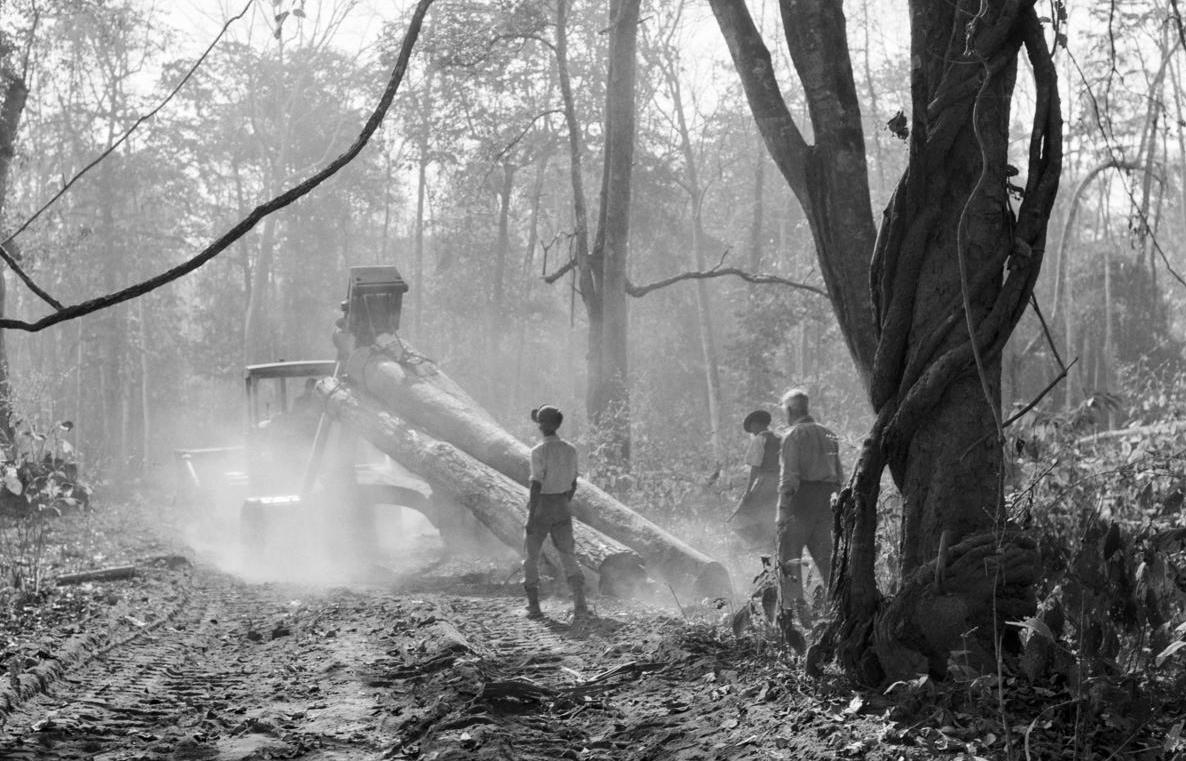Aung San Suu Kyi’s lackluster first year in power was perforated by at least one bold policy – a yearlong ban on logging across all of Myanmar. The ban was hailed by environmental groups as an important gesture from a country that had lost an enormous 10.8 percent of its forest cover between 2010 and 2015, much of it to illegal smugglers.
The ban was lifted at the end of March 2017, and now the Myanmar government says it is on its way to bringing verifiably legal timber to the international market.
Barber Cho, the secretary of the Myanmar Forest Certification Committee, said earlier this week: “Some markets make a big deal about certifications, while some don’t. The US and EU markets ask for certificates. So we have to show them we have a solid system.”
When the ban ended, the Myanmar Timber Enterprise – a state-run monopoly that is meant to control Myanmar’s timber trade – announced that it would eliminate the use of contractors in the timber harvesting process. The Ministry of Natural Resources and Environmental Conservation (MONREC) is implementing systems to ensure the traceability of Myanmar timber to its source.
“MONREC is committed to streamlining our systems, including simplification of current hammer-marking, so that our exporters can clearly demonstrate to their customers that all our timber product exports comply with our laws,” the ministry announced on March 16.
But while these measures are laudable, they may not be enough to rehabilitate the reputation of Myanmar timber anytime soon.
While the ban was in place, the Myanmar Timber Enterprise planned to rely on existing stockpiles of timber to meet domestic and international demand for Myanmar timber. But the ban and the stockpiles failed to eliminate competition from illegal smugglers.
Khin Maung Yi, the permanent secretary of MONREC, announced on Monday that Myanmar authorities intercepted around 50,000 tons of illegal timber during the duration of the ban. They also arrested 8,310 Myanmar nationals and 11 foreigners for illegal timber smuggling.
While these numbers reflect the illegal activity the government was able to prevent, it also shows that the shadow economy continues to thrive.
One of the reasons illegal logging continued during the ban is that its enforcement was not sufficiently collaborative – neither with other agencies in Myanmar nor with other countries.
“The challenge is such that it is going to take more than the Forestry Department [under MONREC] to address. There needs to be a multi-agency approach, which has happened with some of the operations resulting in seizures, but it does need to be institutionalized,” said Faith Doherty, the Forests Campaign team leader for the Environmental Investigation Agency (EIA).
“Secondly, Myanmar can’t do this alone,” she said. “[Countries] importing Myanmar hardwoods, including teak, also need to support the Forestry Department’s efforts. For example, Myanmar has a [round] log export ban. There should be a log import ban from neighboring countries, particularly China, to support Myanmar’s efforts.”
Potential customers agree that Myanmar is not doing enough to keep its forests safe.
In November 2016, a Swedish court found timber company Almtra Nordic guilty of violating the EU Timber Regulation by importing Myanmar teak without sufficiently mitigating the risk of illegality. The ruling also determined that certification from the Myanmar Timber Enterprise cannot not adequately demonstrate that Myanmar timber has been legally harvested.
Almtra Nordic informed EU regulators that it would no longer source wood from Myanmar.
Danish authorities followed up the Swedish ruling last month with an even more expansive one – a sanction on the entire Myanmar timber industry.
Earlier this month, a German prosecutor began investigating the construction of a superyacht owned by a Russian billionaire that was found to have used illegal Myanmar teak.
At the time, EIA Forests Campaigner Peter Cooper said: “In simple terms, no teak from Myanmar can legally be placed on the EU market due to the high risk of illegality associated with timber from that country and the lack of transparency by its government to allow access to information that might demonstrate compliance.”
Nonetheless, the Myanmar government still says it is pushing ahead with efforts to gain the confidence of the international community. The government continues to maintain a 10-year logging ban in the Bago mountain range, allowing teak forests to regenerate.
But so far, the government has not released a detailed plan on how it will improve the documentation process to sufficiently mitigate the risk of illegality.
Earlier this week, MONREC Minister Ohn Win said: “To provide transparency in logging, the Myanmar Timber Enterprise will let ministers, MPs and civil-society organizations observe the whole process – from cutting down the trees to transporting – starting from the 2017-18 fiscal year. We will produce teak with credentials.”
Whether these commitments will translate to internationally acceptable expressions of due diligence remains to be seen. To some, it appears as though the government is rushing to sell off its wood before the proper sustainability measures are in place, which could render last year’s logging ban meaningless.
“The one-year national logging ban is now over,” remarked EIA’s Faith Doherty. “That is a shame as having that in place for longer than a year would have been more productive.”



